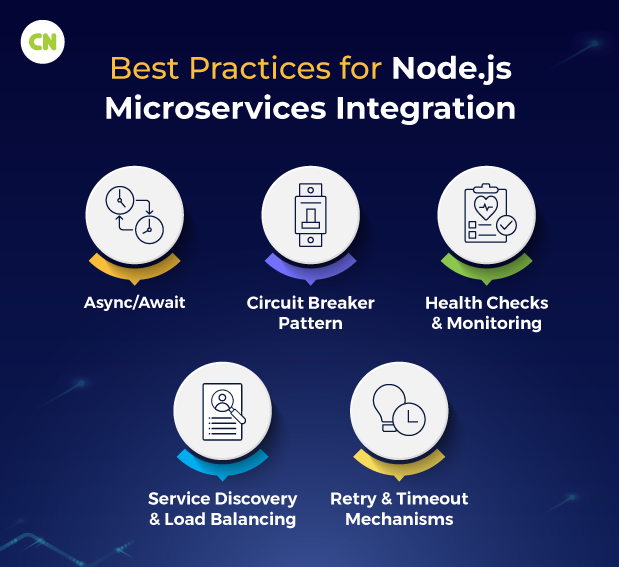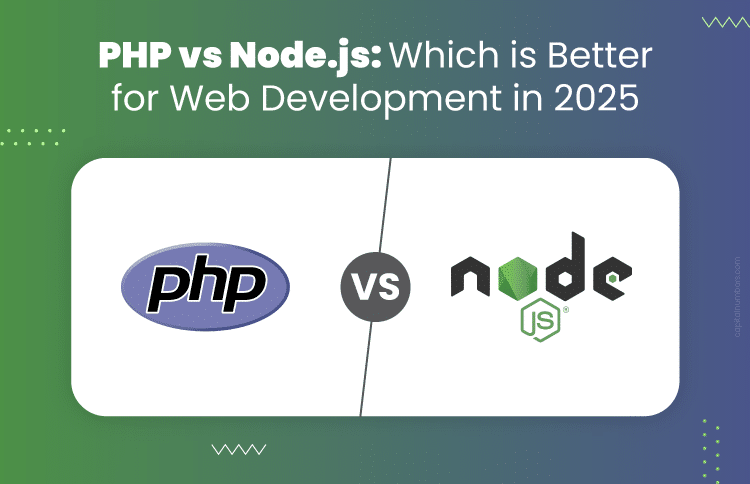Unleashing the Power of Node.js: The Ultimate Platform for Microservices Integration
Table of Contents
In the rapidly evolving realm of software development, microservices have emerged as a game-changer, revolutionizing the way modern applications are built, deployed, and scaled. Microservices architecture, with its emphasis on modularity, scalability, and resilience, has become the go-to approach for organizations striving to meet the demands of today’s dynamic and fast-paced digital landscape.
At the heart of every successful microservices architecture lies the need for seamless integration between various services, enabling them to communicate, collaborate, and coexist harmoniously. In this quest for integration excellence, one platform stands out as the ultimate choice: Node.js. With its lightweight, asynchronous, and versatile nature, Node.js has cemented its position as the preferred platform for integrating microservices. In this article, we’ll explore why Node.js is the perfect fit for microservices integration and delve into best practices for harnessing its power to build scalable and resilient microservices architectures.
Understanding Node.js: The Powerhouse of Asynchronous Programming
Node.js, an open-source, cross-platform JavaScript runtime built on Chrome’s V8 JavaScript engine, has gained immense popularity recently, particularly for its ability to handle asynchronous I/O operations efficiently. Unlike traditional server-side technologies, Node.js uses a non-blocking, event-driven architecture that allows it to handle multiple concurrent connections without the overhead of thread-based concurrency models. This makes it ideal for building highly responsive and scalable microservices architectures where asynchronous communication is prevalent.
Asynchronous Nature: Unlocking Concurrent Performance
In the world of microservices, where services communicate with each other over networks and perform I/O-bound operations such as making HTTP requests, querying databases, or processing messages from queues, asynchronous programming is paramount. Node.js’s event-driven, non-blocking architecture makes it exceptionally well-suited for handling asynchronous operations, allowing microservices to communicate seamlessly without blocking the execution thread. This enables microservices architectures to achieve high levels of concurrency and responsiveness, essential for meeting the demands of modern, distributed applications.
Lightweight and Scalable: Empowering Microservices Orchestration
One of the key advantages of Node.js is its lightweight and scalable nature, making it an ideal platform for orchestrating microservices in distributed environments. With its small memory footprint and efficient resource utilization, Node.js enables developers to deploy and manage microservices with ease, whether it’s through containerization technologies like Docker or orchestration platforms like Kubernetes. This inherent scalability makes Node.js a perfect fit for building and scaling microservices architectures to meet the evolving needs of modern applications.
Rich Ecosystem: Abundance of Tools and Libraries
Node.js boasts a thriving ecosystem of NPM (Node Package Manager) modules, providing a vast array of libraries and frameworks for building and integrating microservices. Whether it’s handling HTTP requests with Express.js, implementing messaging patterns with RabbitMQ or Kafka, or orchestrating microservices with tools like PM2 or Kubernetes, Node.js offers a plethora of tools and libraries to streamline the development and integration of microservices. This rich ecosystem accelerates development cycles, enhances productivity, and empowers developers to build robust and scalable microservices architectures with ease.
You may also read: 10 Crucial Node.js Packages for Modern Development Needs
JSON Everywhere: Seamless Data Interchange
In the world of microservices, where services communicate with each other using lightweight data interchange formats such as JSON (JavaScript Object Notation), Node.js’s native support for JSON simplifies the process of serializing and deserializing data between microservices. Since Node.js is built on JavaScript, which natively supports JSON, it eliminates the need for additional serialization/deserialization libraries, making communication between microservices seamless and efficient. This native support for JSON accelerates development cycles and enhances interoperability, facilitating smooth communication between microservices in a distributed architecture.
Best Practices for Node.js Microservices Integration
While Node.js provides a powerful platform for integrating microservices, adhering to best practices is essential for building robust and scalable microservices architectures. Here are some best practices for leveraging Node.js to integrate microservices effectively:
- Use Async/Await for Asynchronous Operations: Embrace Node.js’s async/await syntax to write clean, readable, and efficient asynchronous code, making it easier to handle asynchronous operations such as network requests and database queries.
- Implement Circuit Breaker Pattern: Implement the circuit breaker pattern using libraries like ‘opossum’ or ‘brakes’ to handle failures and prevent cascading failures in microservices communication, ensuring resilience and fault tolerance.
- Implement Health Checks and Monitoring: Implement health checks and monitoring endpoints in each microservice to ensure service availability and detect issues proactively. Tools like Prometheus and Grafana can be used for monitoring Node.js applications, enabling real-time insights into the health and performance of microservices architectures.
- Implement Service Discovery and Load Balancing: Utilize service discovery mechanisms like Consul, etcd, or Kubernetes service discovery to enable dynamic service registration and discovery, ensuring seamless communication between microservices. Implement load balancing using tools like Nginx or HAProxy to distribute incoming traffic evenly across multiple instances of microservices, optimizing performance and scalability.
- Implement Retry and Timeout Mechanisms: Implement retry and timeout mechanisms in microservices communication to handle transient failures gracefully and prevent long-running requests from blocking the system, ensuring reliability and responsiveness in microservices architectures.
You may also read: Why Choose Node.js for Enterprise Application Development?
Conclusion
In conclusion, Node.js stands out as the ultimate platform for integrating microservices, thanks to its asynchronous nature, lightweight and scalable architecture, a rich ecosystem of tools and libraries, and seamless support for JSON data interchange. By leveraging Node.js along with best practices for microservices integration, developers can build scalable, resilient, and efficient microservices architectures that power modern applications in today’s fast-paced digital world. Whether you’re building a small-scale application or a large-scale distributed system, Node.js empowers you to unlock the full potential of microservices and drive innovation in the world of software development. So, embrace Node.js, unleash its power, and embark on a journey to build the next generation of microservices architectures that redefine the way we build, deploy, and scale applications in the digital age.
Ready to take your digital solutions to the next level with Node.js microservices? Our expert Node.js developers are here to help. By choosing to hire a Node.js developer from our team, you’re not just getting a coder; you’re gaining a partner dedicated to enhancing your digital landscape. Let’s innovate together and build robust, scalable microservices that will set your applications apart. Reach out today and start transforming your ideas into reality with the power of Node.js.


















